Indigenous and Tribal People of Suriname Welcome UN Women Multi-Country Office (MCO) Caribbean to their Villages: One Step Closer to Implementing Women’s Empowerment and Livelihood Programme
Date:
November 28, 2023 - Under a programme to build resilience and improve livelihoods, officers of UN Women MCO Caribbean and the Food and Agriculture Organisation (FAO) delegation were recently welcomed by Indigenous and Tribal People (ITP) in the villages of Matta and Atjoni. The mission visit was under the SDG Fund Joint Programme “Leaving No One Behind, Building Resilience, and Improving Livelihoods of Indigenous and Tribal Peoples (ITPs) in Suriname.”
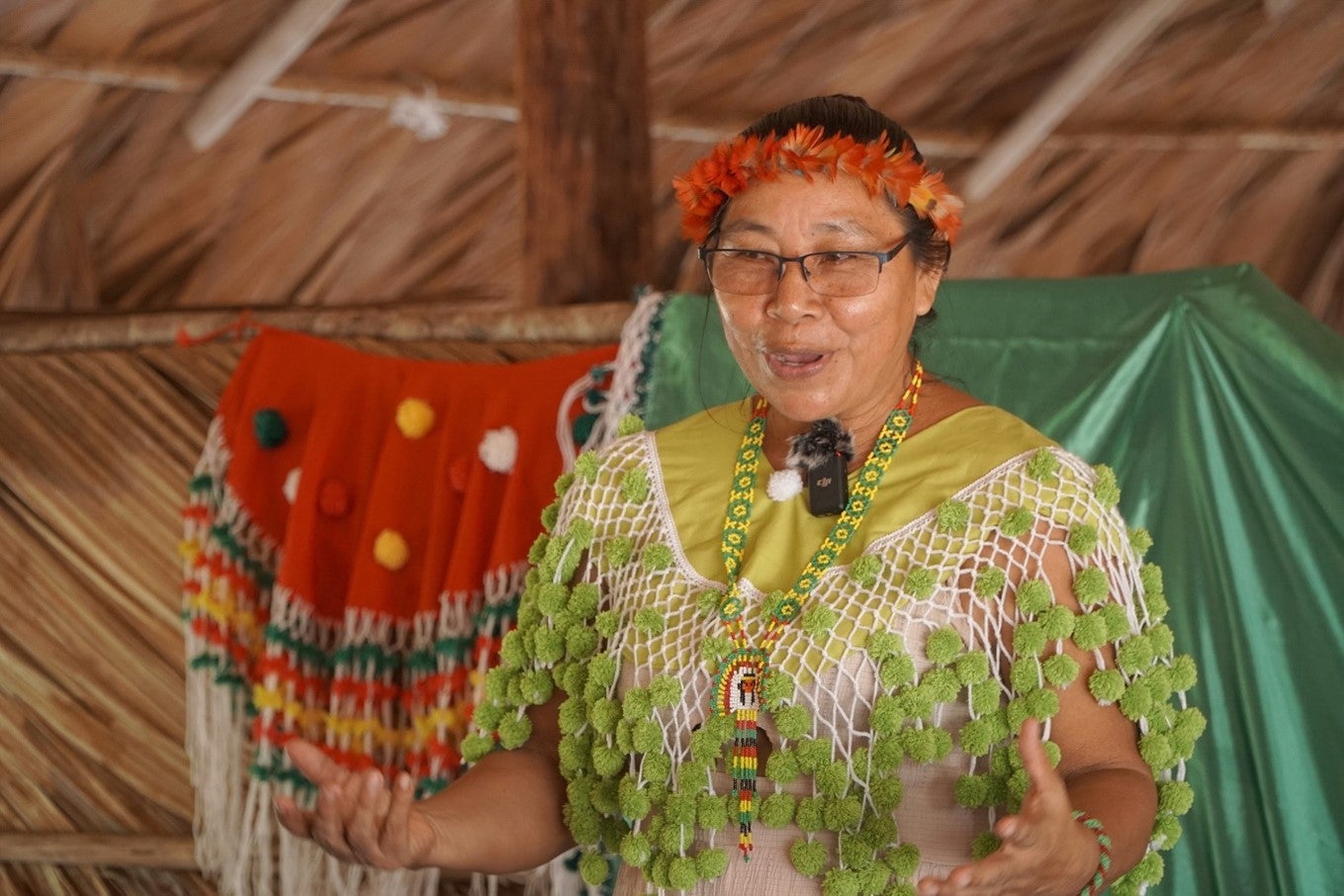
Chief Wendy Sabajo of Matta welcome the delegation to the village. Photo Courtesy UN Resident Coordinator Office/ Hedwig de la Fuente
The SDG Fund Joint Programme is aimed at integrated policy solutions to enable inclusion, build resilience, and improve livelihoods among Indigenous and Tribal Peoples (ITPs) in Suriname.
The UN Women component is focused on improved livelihoods and enhanced food security of women and girls within the targeted ITPs communities by 2023. It’s meant to help the communities restart or find new income-generating activities given the economic and social impact of the COVID-19 pandemic, to develop their financial resilience, and safeguard food production and food security. Skills training in more productive and sustainable agricultural practices and coaching will be provided to the communities.
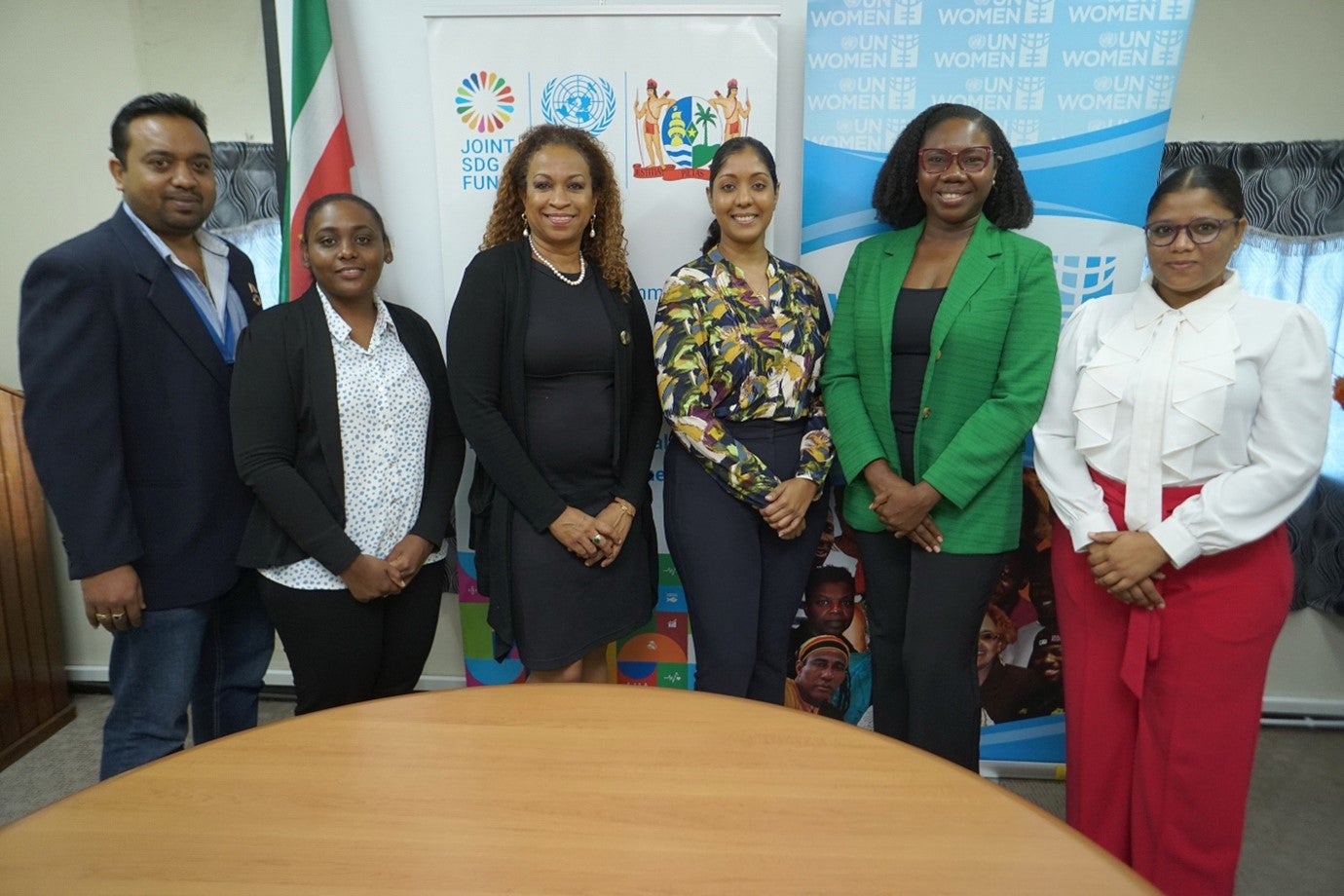
The delegation of the SDG Fund Joint Programme team that visited Suriname on the mission. L-R FAO representatives Naylan Dwarika- Communications Officer, Janelle Joe - Assistant Representative of Programmes, Nicole Darmanie - Project Officer and UN Women MCO Caribbean officers Je’nille Maraj - Planning Coordination Specialist, Letitia Nicholas- Monitoring and Evaluation Specialist and Shelly Dolabaille, Communications Analyst. Photo Courtesy UN Resident Coordinator Office/ Hedwig de la Fuente
The joint programme will also address the feminization of poverty by supporting rural women to become small-holder farmers and agri-preneurs. This Integrated Rural Development Initiative will also address the multi-dimensionality of gender equality issues in this sector: unequal access to land and land/business ownership; discrimination in access to resources, neglected disaster and climate change proofing of women livelihoods in this sector; gender-blindness of public policy, and key skills development for growth and income security.
Ahead of the visit, the delegation met with village chiefs and council members of VIDs, adhering to the principles of Free, Prior and Informed Consent (FPIC), which is essential for collaborative efforts with ITPs.
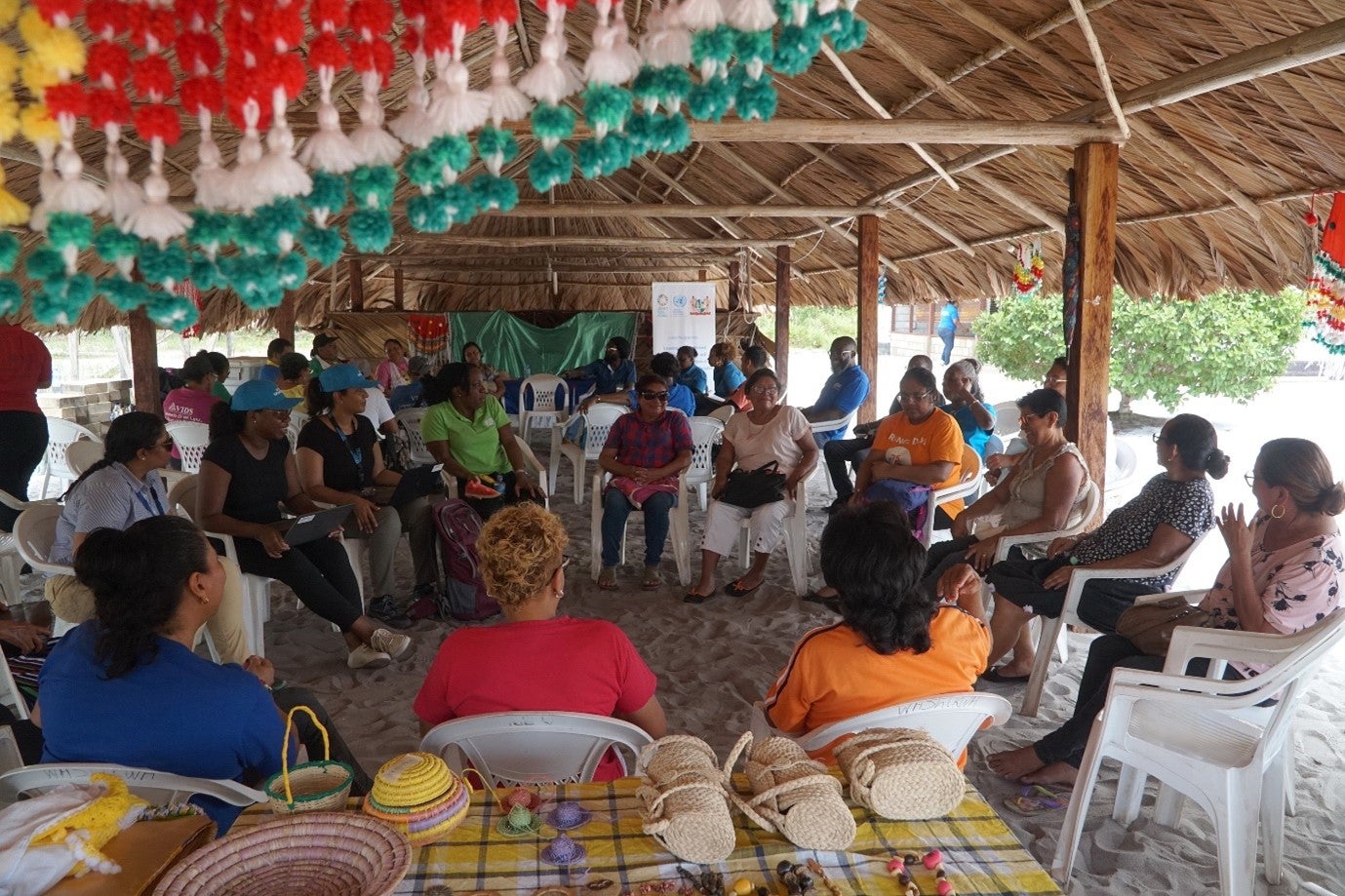
Villagers take part in the needs assessment focus group, openly sharing their experiences with UN Women MCO Caribbean staff. Photo Courtesy UN Resident Coordinator Office/ Hedwig de la Fuente
The mission included a visit to Matta, an Indigenous Village and to Atjoni, a tribal village. Needs assessment focus groups were conducted with the ITPs to gain insight to inform the project design and implementation schedule.
The Matta people welcomed the delegation into their communal hut, which became a forum for dialogue, where the purpose of the joint programme was discussed, and the needs assessment conducted, fostering a deeper understanding of the specific requirements of ITP women and girls.
The field visit to Matta featured not only discussions but also immersive experiences, including a tour of a pineapple field and the showcasing of Indigenous craft and jewelry, available for purchase.
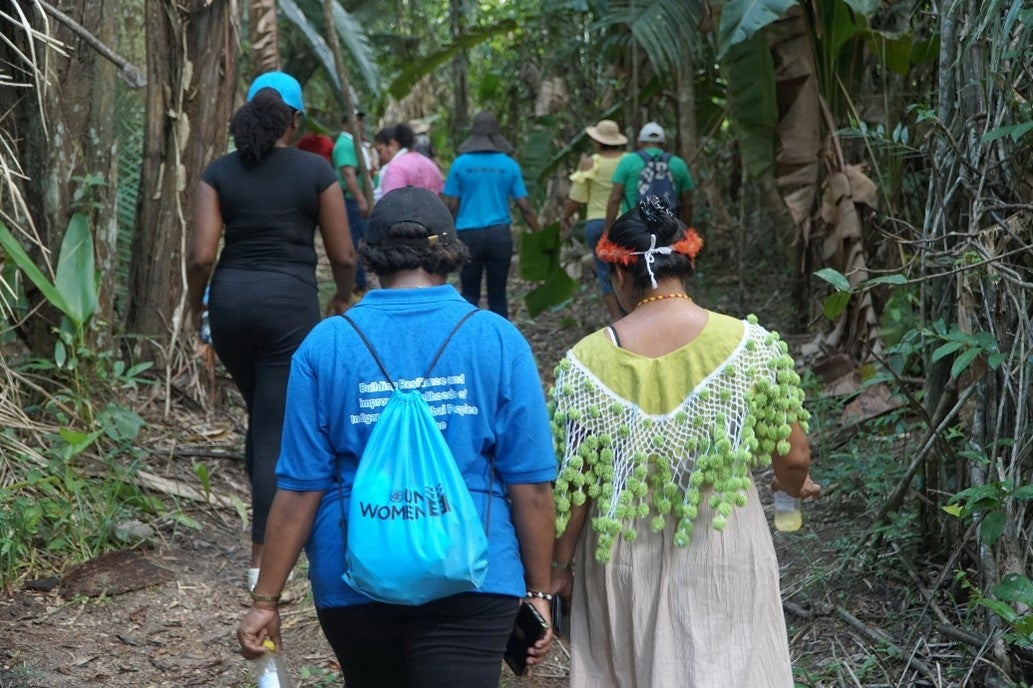
Permanent Secretary Pavion Hermien, Directorate of Agriculture (left) and Chief Wendy Sabajo (right) along with delegation members trekking to the pineapple field in Matta. Photo Courtesy UN Resident Coordinator Office/ Hedwig de la Fuente
The second field visit was to the Tribal Village of Atjoni for a needs assessment, where the team observed challenges such as a river with low levels of water, which impacts the tribe’s ability to access drinking water.
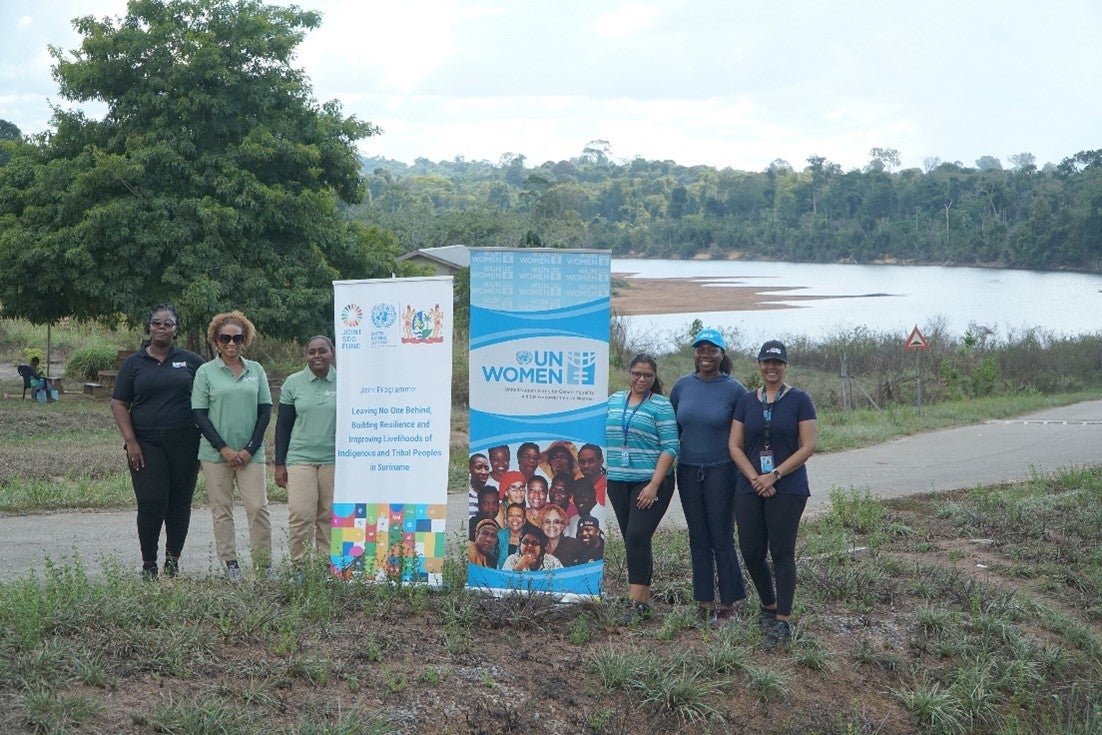
Part of the delegation are pictured here in front of the river in the tribal village of Atjoni. In the background, the exposed riverbed is visible due to low water levels. Photo Courtesy UN Resident Coordinator Office/ Hedwig de la Fuente
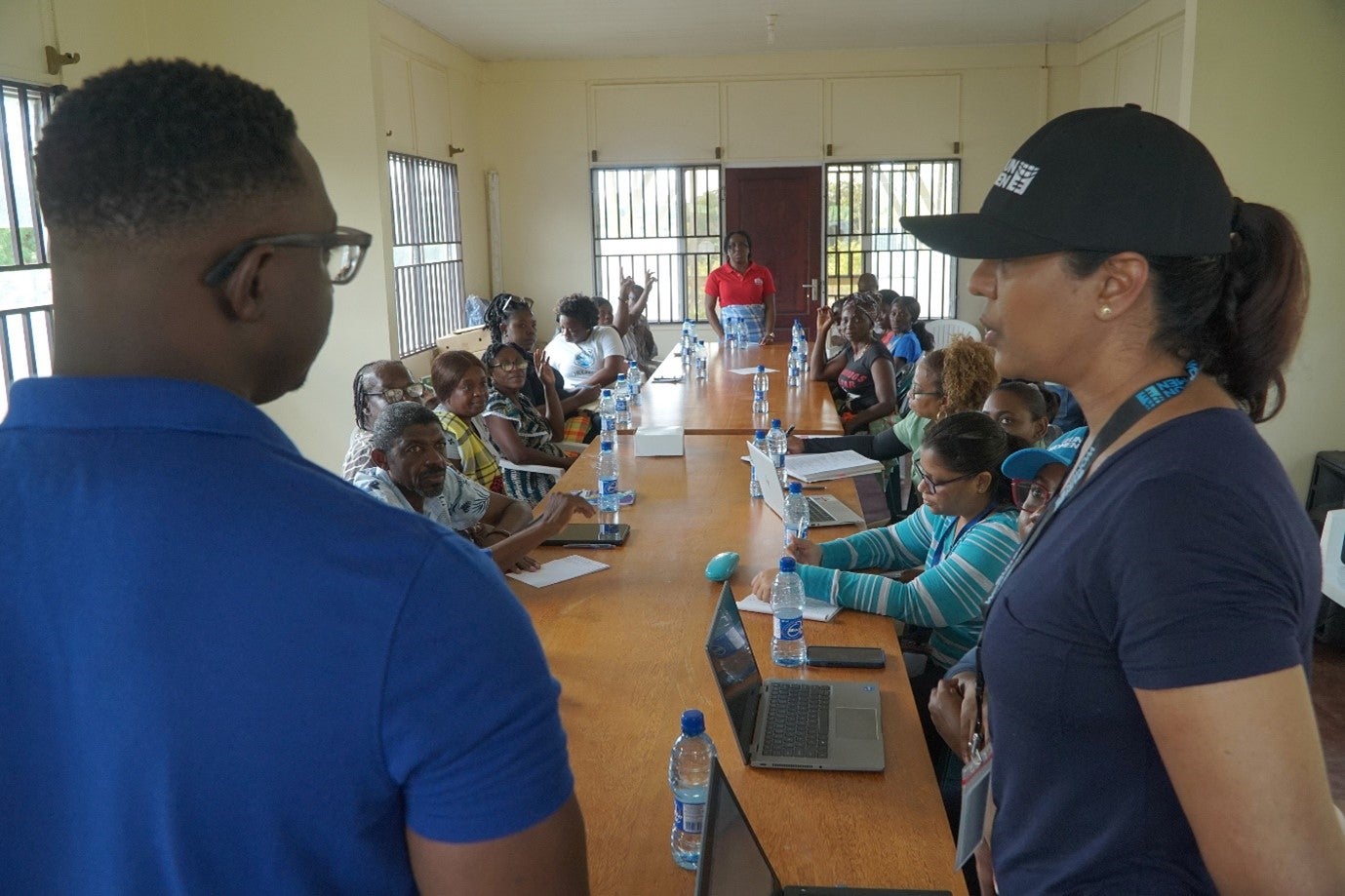
Je’nille Maraj, Planning Coordination Specialist at UN Women MCO Caribbean is aided by a translator to facilitate the focus group in Atjoni. Photo Courtesy UN Resident Coordinator Office/ Hedwig de la Fuente
The delegation also met with representatives from the Ministry of Regional Development and Sports, including Permanent Secretaries from relevant Directorates as part of a comprehensive approach to learning about and providing support for the specific needs of ITP women and girls.
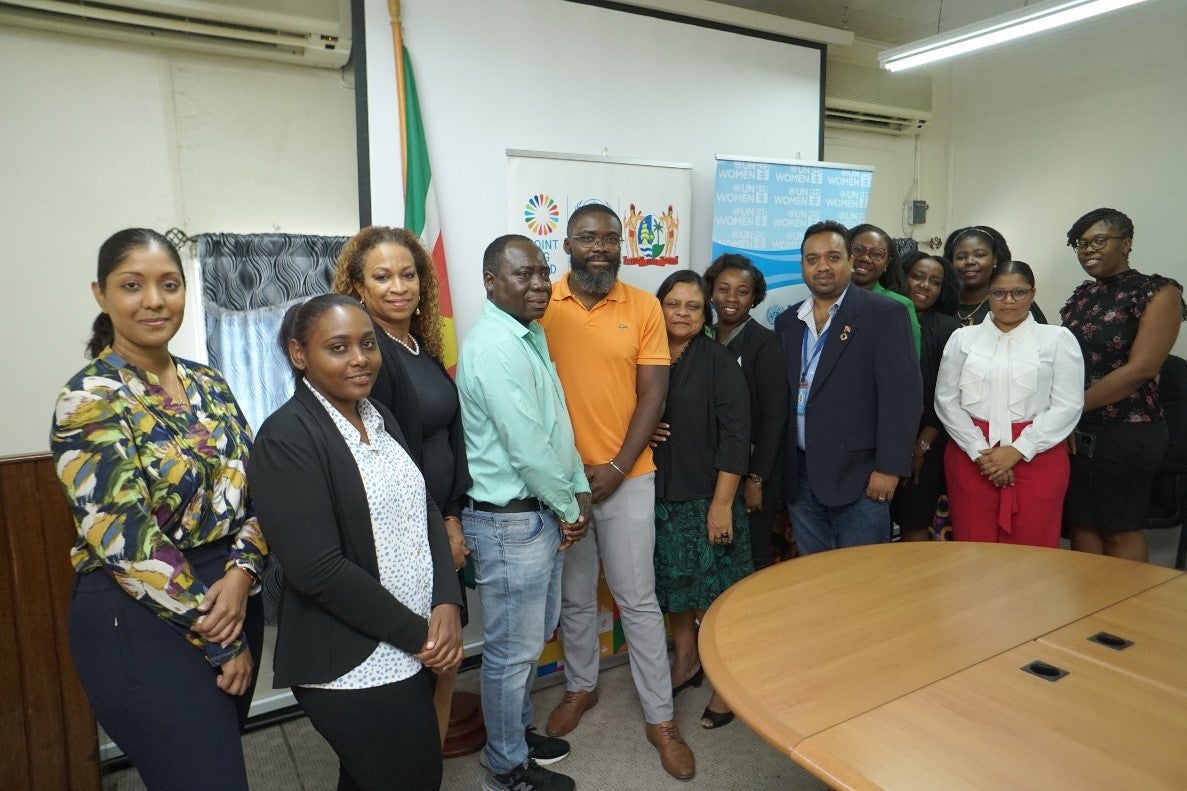
The SDG Fund Joint Programme team and representatives from the Ministry of Regional Development and Sports pose for a group photograph after the meeting. Photo Courtesy UN Resident Coordinator Office/ Hedwig de la Fuente
The next steps are to compile the data and triangulate it against data gathered from previous stakeholder consultations. These findings would be presented to the VIDS and KAMPOS steering committee for feedback, fine tuning and approval.
This needs assessment marks a crucial step toward realizing impactful and sustainable initiatives for the welfare of Suriname's Indigenous and Tribal People.